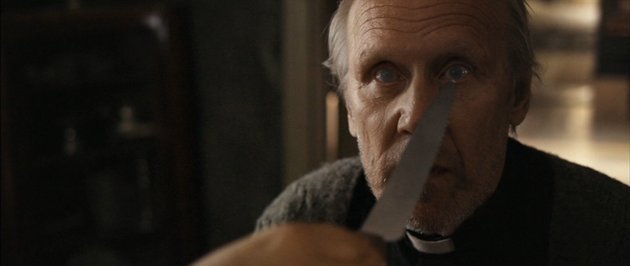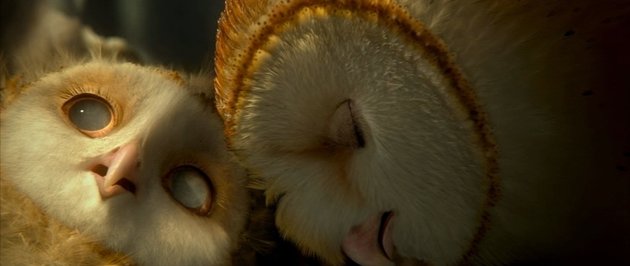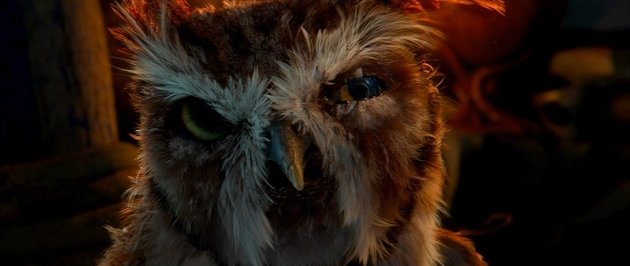 Short but intense, Letters to Father Jacob explores two souls in transformation; one a murderer who has just received an unexpected pardon, the other an elderly blind priest fearing the end of his usefulness. With nowhere to go after a 12 year stint in prison without any family visits or support, Leila accepts the written job offer from one Father Jacob, an elderly blind priest who lives in a ramshackle house in the countryside.
Short but intense, Letters to Father Jacob explores two souls in transformation; one a murderer who has just received an unexpected pardon, the other an elderly blind priest fearing the end of his usefulness. With nowhere to go after a 12 year stint in prison without any family visits or support, Leila accepts the written job offer from one Father Jacob, an elderly blind priest who lives in a ramshackle house in the countryside.
Their first meeting is fraught with tension; Leila doesn’t know what her duties are, how to deal with a blind man, or even how to hold a cursory conversation. Childishly wondering if he’s really blind, she waves a kitchen knife in front of his eyes to see if he’ll react.

Is that a dagger I see before me?
Blind priests are nothing new; there are blind priests currently practicing in various parts of the world today. The Catholic Church has an official accommodation for the disability of a blind or partially sighted priest which allows him to say slightly modified Masses, exempts him from saying certain Holy Week masses, (perhaps because of the extra rituals and deviation from the standard form they involve?) and requires that he have an assistant if his blindness is far advanced.
Father Jacob has apparently been blind for a while now, as he speaks of having people read verses from the Bible for him to memorize as a young priest. Having gained a reputation as something of a mystic, Father Jacob has been receiving requests for prayers and intercession through the mail from all over Finland. His blindness prevents him from reading them independently, though he manages most tasks around the house fairly well. Leila’s duties entail little more than taking care of his dwindling correspondence, but she does not want to be bothered; she tosses most of his letters into the well and lies about them having no return address. Father Jacob can see right through the lies, though, and gently informs her of this.
At times Leila seems on the verge of stealing Father Jacob’s money and bolting, but wavers whenever she realizes she has nowhere to go. She starts to believe in Father Jacob’s heartfelt devotion to his epistolary flock, until the flow of letters suddenly dries up, triggering a crisis of the faith for Father Jacob. He insists on visiting a nearby church for some imaginary service in his pajamas, with Leila trailing behind.
Leila realizes that Father Jacob arranged for her pardon simply because he wanted a soul to save, and defiantly strands him in the church. Returning to his home, she takes some of his money and calls for a cab, but freezes when the cabdriver asks her what address to go to.
Leila considers–and almost carries out–suicide when Father Jacob returns home on his own.
On the postman’s next visit, Leila decides to make a change in her life, and compassionately begins to invent letters for the old priest to pray over. When he isn’t fooled, she breaks down and asks forgiveness for the murder she committed. (Which, of course, turns out to be justifiable homicide… God may forgive all sins, but movie audiences do not.) Father Jacob produces a letter from one of his frequent correspondents that offers her redemption and a path to a new life. And then, like all good disabled characters who have inspired the able-bodied to lead good lives, he immediately dies in his long johns.





